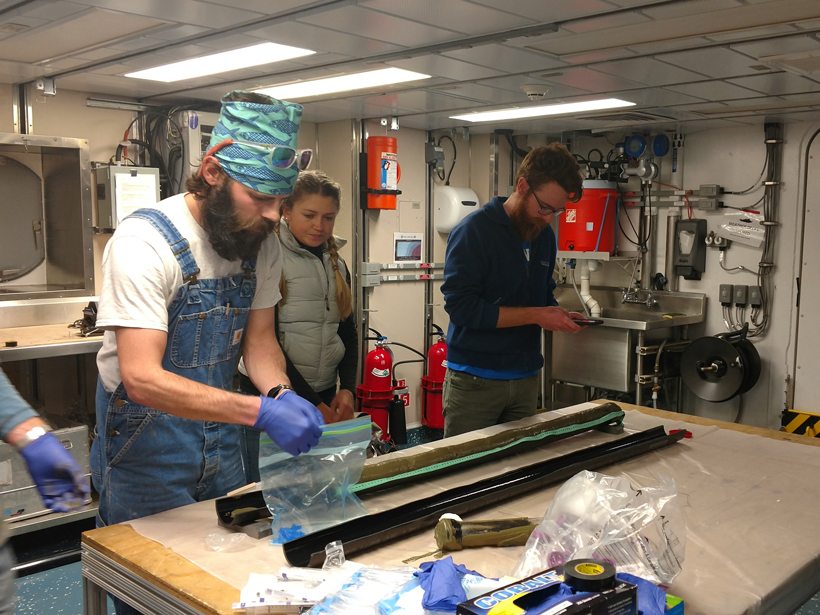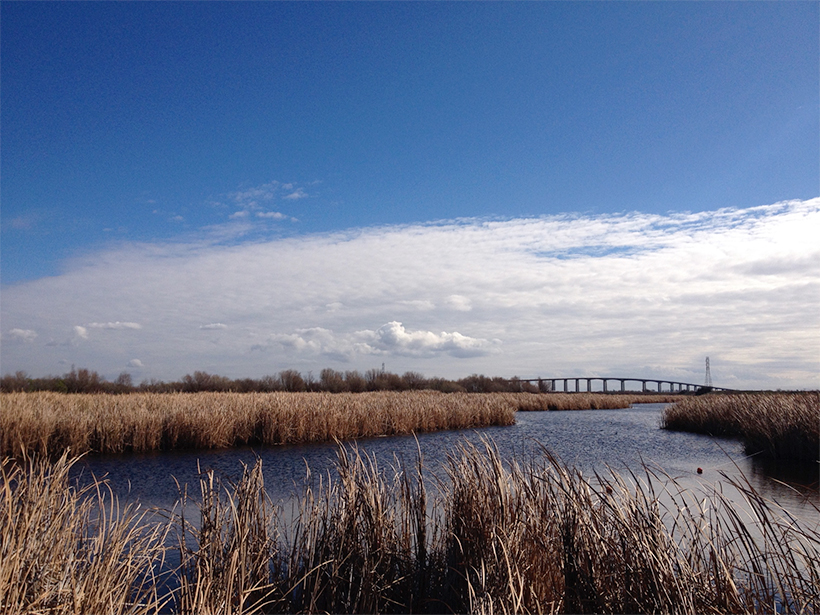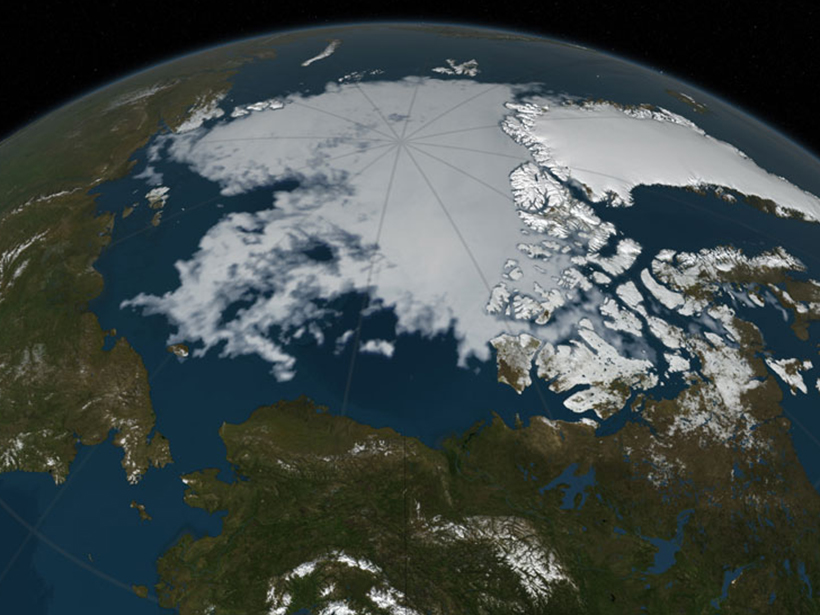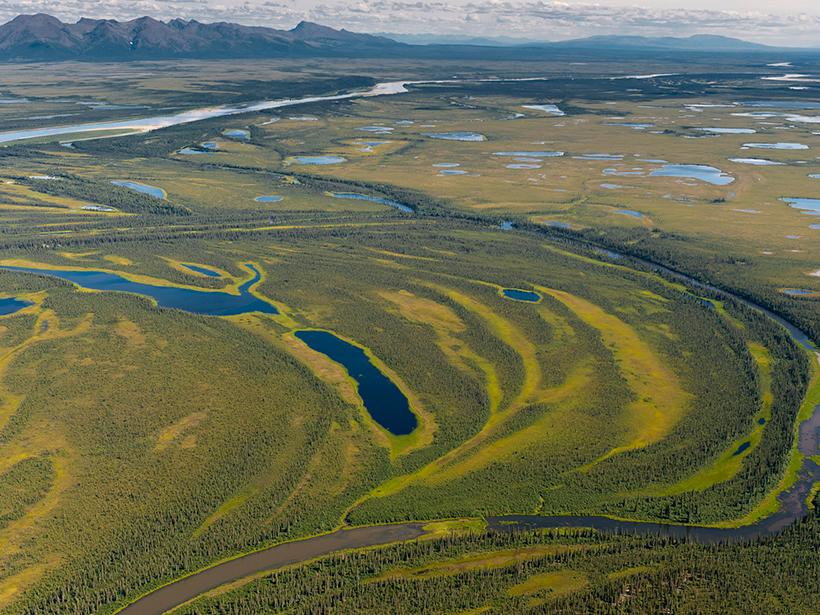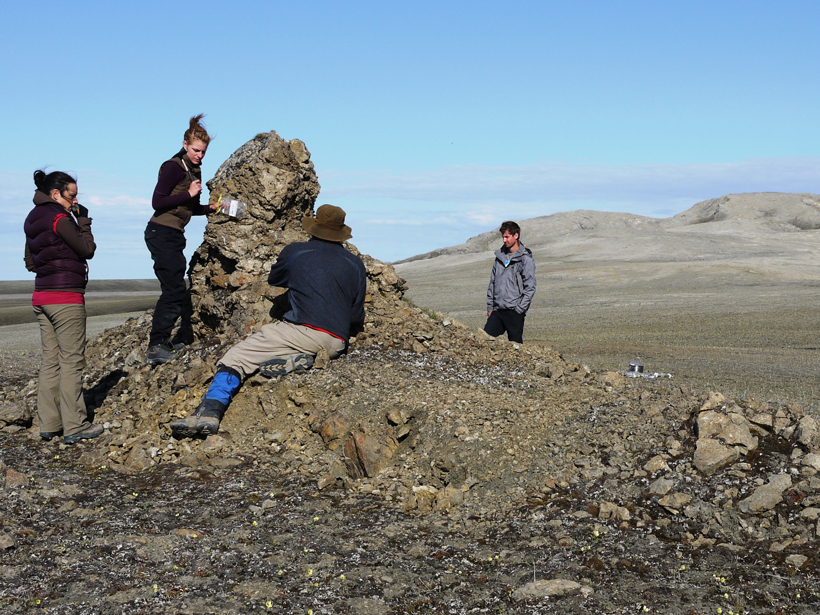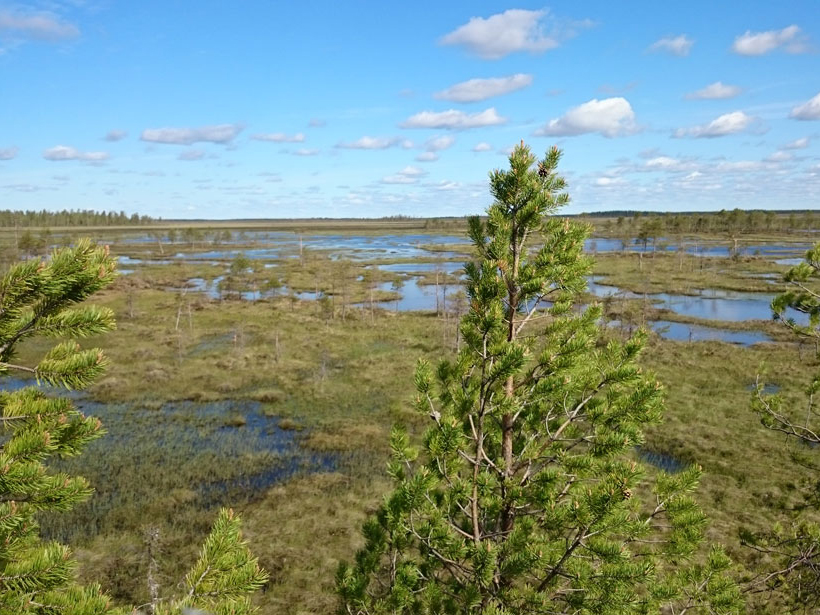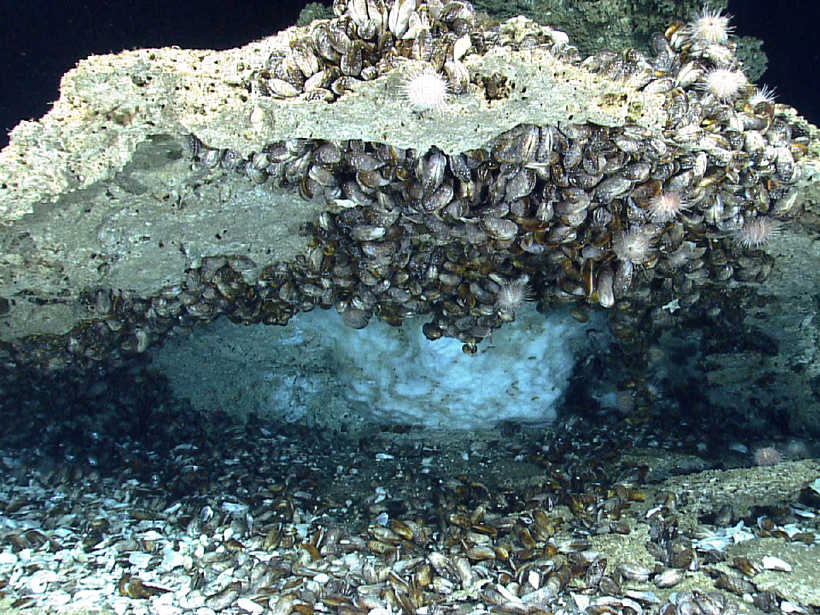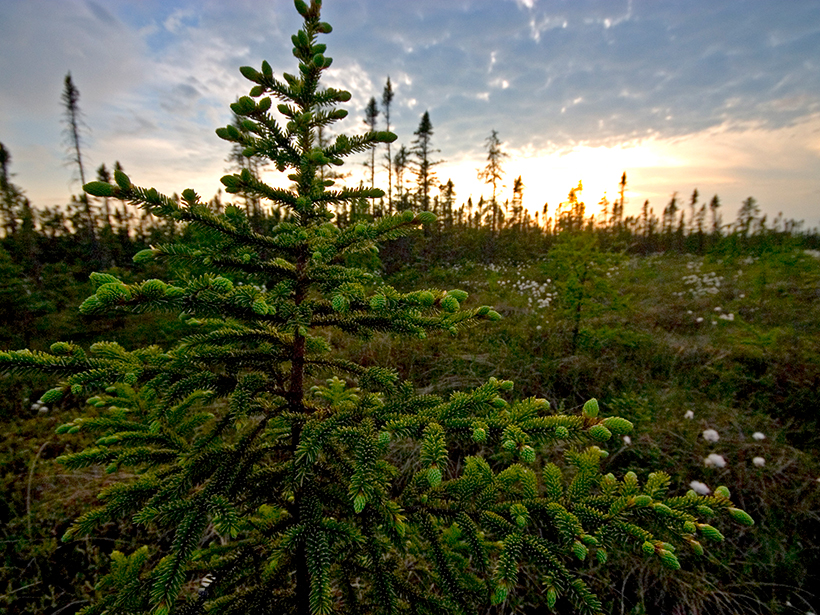Early-career scientists aboard the 2016 UNOLS Chief Scientist Training Cruise explored recently reactivated underwater methane seeps in the San Diego Trough.
methane
A New Model Yields a Better Picture of Methane Fluxes
Scientists update an old model with recent findings, allowing for a more accurate understanding of methane dynamics in wetlands.
A Benchmark for Trace Greenhouse Gases in the Arctic Ocean
Samples of seawater from the North American Arctic show that the region is neither a major source nor sink of methane and nitrous oxide to the overlying atmosphere.
Resolving a Methane Mystery in the Arctic
International Workshop to Reconcile Methane Budgets in the Northern Permafrost Region; Seattle, Washington, 7–9 March 2017
Ancient Methane Seeps Tell Tale of Sudden Warming
Newly discovered rock mounds left by ancient methane seeps give scientists clues that methane on ancient ocean floor was released by ancient global warming.
What’s the Average Methane Isotope Signature in Arctic Wetlands?
Aircraft measurements confirm that methane emissions from northern European wetlands exhibit a uniform regional carbon isotopic signature, despite considerable ground-level heterogeneity.
Could Subsea Methane Hydrates Be a Warming “Tipping Point”?
The authors of a recent paper in Reviews of Geophysics answer questions about the potential for subsea methane hydrates to contribute to global warming.
Early-Career Scientists Explore Newly Discovered Methane Seeps
UNOLS Deep Submergence Training Cruise 2016; Woods Hole, Massachusetts, 28 July to 7 August 2016
Using Isotope Fingerprints to Solve a Methane Mystery
Atmospheric methane levels are rising, and isotopic ratios within the greenhouse gas suggest that the tropics may be to blame.
A Wetter Climate Increases Methane Production in Peat
As northern Minnesota's climate got wetter, precipitation drove mobile forms of young carbon deeper into peatlands, doubling the size of methane-producing strata.

